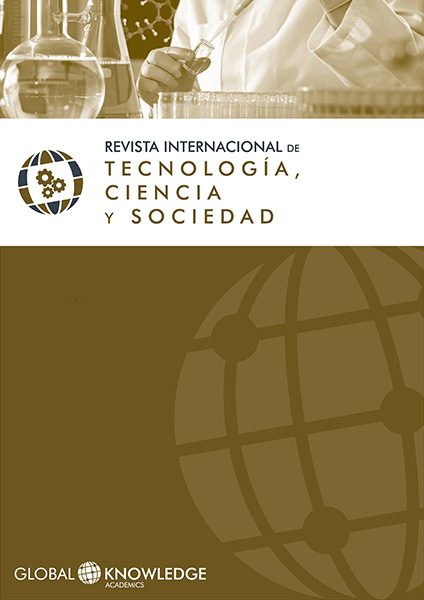Areas of Technological Transvaluation through Deleuze-Guattari’s Philosophy
DOI:
https://doi.org/10.37467/gka-revtechno.v8.1829Abstract
The philosophy of Deleuze and Guattari is used both to encourage the current technological and cybernetic evolution of society and to the contrary: to proclaim the need for areas and opaque layers to interconnectivity. Probably this is because technology itself is neutral: it depends on our uses and applications, the type of social formations that it gives rise to. But, if we contrast the current uses and applications, which areas would be the most critical, those in which there is more sensitively a transvaluation of the use of technologies? Four axes are proposed around which we critically decide the human and social use of technology.
References
Bateson, G., & Donaldson, R. E. (2006). Una unidad sagrada: pasos ulteriores hacia una ecología de la mente. Barcelona: Gedisa.
Coady, D., & Corry, R. (2013). The climate change debate: an epistemic and ethical enquiry. Houndmills, Basingstoke, Hampshire ; New York, NY: Palgrave Macmillan.
Deleuze, G., & Guattari, F. (1985). El anti-edipo: capitalismo y esquizofrenia. Barcelona: Paidós.
Deleuze, G., & Guattari, F. (2002). Mil mesetas: capitalismo y esquizofrenia (5. ed). Valencia: Pre-Textos.
Deleuze, G., Guattari, F., & Kauf, T. (2011). ¿Qué es la filosofía? Barcelona, España: Anagrama.
Due, B. L., & Bornakke, T. (2016). Big thick blending: Qualifying Service Design Thinking through behavioural methods and network granularity & extension. Working papers on interaction and communication, 2. Recuperado de https://circd.ku.dk/documents/big_thick_blending_2.8.pdf
Foucault, M. (2009). La arqueología del saber. Madrid: Siglo Veintiuno.
Hand, D. J., Mannila, H., & Smyth, P. (2001). Principles of data mining. Cambridge, Mass: MIT Press.
Hurley, D. (2017, March 25). Medium Corporation: Technical & Human Problems With Anthropomorphism & Technopomorphism. Recuperado de https://medium.com/emergent-future/technical-human-problems-with-anthropomorphism-technopomorphism-13c50e5e3f36.
Konchady, M. (2006). Text mining application programming. Boston, Mass: Charles River Media.
Lanier, J. (2011). You are not a gadget: a manifesto (publ. in Penguin books with updated material). London: Penguin Books.
Lévy, P. (1997). L’intelligence collective: pour une anthropologie du cyberspace. Paris: La Découverte.
Lévy, P. (1999). ¿Qué es lo virtual? Barcelona: Paidós.
Lévy, P. (2007). Cibercultura: informe al Consejo de Europa (1. ed). Rubí (Barcelona): Anthropos.
Mayer-Schönberger, V., Cukier, K., Hogan, J., & Recorded Books, L. (2013). Big data: a revolution that will transform how we live, work, and think. Prince Frederick, MD: Recorded Books. Recuperado de http://www.OneClickDigital.com
Noble, S. U. (2018). Algorithms of oppression: how search engines reinforce racism. New York: New York University Press. DOI: https://doi.org/10.2307/j.ctt1pwt9w5
Oreskes, N., & Conway, E. M. (2010). Merchants of doubt: how a handful of scientists obscured the truth on issues from tobacco smoke to global warming (1st U.S. ed). New York: Bloomsbury Press.
Sultan, K., Ruhi, U., & Lakhani, R. (2018). CONCEPTUALIZING BLOCKCHAINS: CHARACTERISTICS & APPLICATIONS. Presentado en 11th IADIS International Conference Information Systems 2018. Recuperado de https://arxiv.org/abs/1806.03693
Wiener, N. (2013). Cybernetics or control and communication in the animal and the machine (2. ed). Cambridge, Mass: MIT Press.
Yang, X.-S. (2010). Nature-inspired metaheuristic algorithms (2. ed). Frome: Luniver Press.
Downloads
Published
How to Cite
Issue
Section
License
Those authors who publish in this journal accept the following terms:
- Authors will keep the moral right of the work and they will transfer the commercial rights.
- After 1 year from publication, the work shall thereafter be open access online on our website, but will retain copyright.
- In the event that the authors wish to assign an Creative Commons (CC) license, they may request it by writing to publishing@eagora.org








